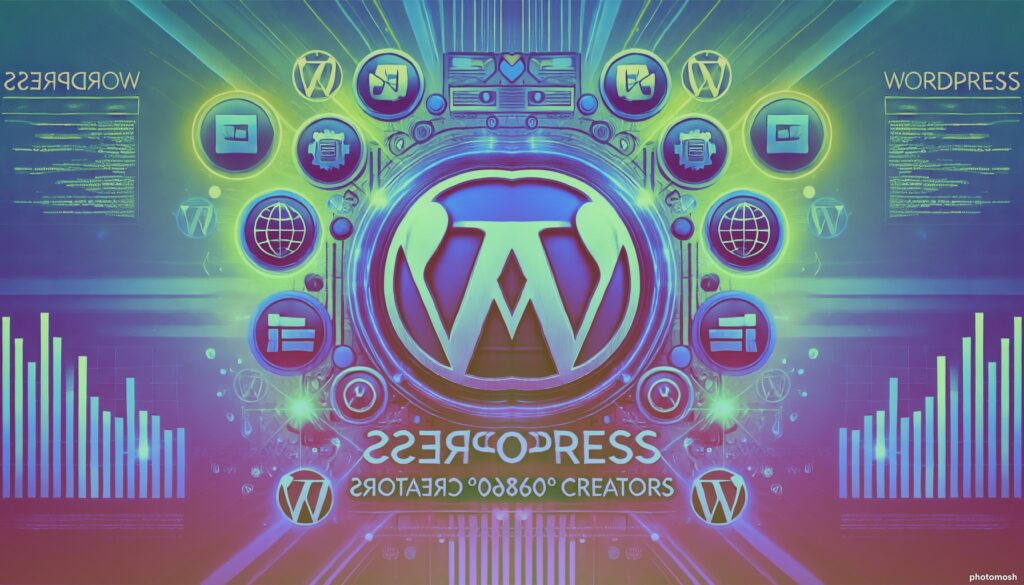Creating a website remains a highly sought-after skill and a profession in its own right. In 2024, as online presence has become essential for businesses of all sizes, the demand for professional and functional websites has never been stronger.
Steps to Create a Website
1. Define the Website’s Objective
Before starting to create a website, it is crucial to clearly define its objectives. Whether it’s selling products online, promoting a brand, or providing information, having a clear vision of what the website should accomplish is essential to guide all subsequent steps in the creation process.
2. Choose a Development Platform
There are many website development platforms, each with its own advantages and disadvantages. Among the most popular options in 2024 are WordPress, Wix, Squarespace, and Shopify for e-commerce sites. The choice of platform will depend on the specific project needs, the level of customization required, and the available budget.
At the moment, WordPress dominates the market by a wide margin, for many reasons that we will detail in a future article.
3. Design the Site Architecture
Designing the site architecture involves creating a clear and intuitive navigation structure, allowing users to easily find the information they need. This includes defining main pages, navigation menus, and possibly categories or tags to organize content.
4. Create Content
Content is at the heart of every website. This includes text, images, videos, and any other multimedia elements that effectively communicate the brand’s message and engage visitors. Content should be informative, relevant, and optimized for search engines to improve the site’s online visibility.
5. Design and Development
Site design and development involve creating the user interface, laying out visual elements, and programming interactive features. This stage requires a combination of skills in graphic design, web development (HTML, CSS, JavaScript), and possibly back-end programming for more advanced features.
6. Search Engine Optimization (SEO)
Search engine optimization is essential to ensure that the site ranks well in search engine results. This involves using relevant keywords, optimizing HTML tags, creating high-quality content, and managing backlinks. In 2024, with the constant evolution of search algorithms, staying up-to-date with SEO best practices is crucial for the long-term success of the site.
7. Testing and Deployment
Before officially launching the site, it’s important to test it to ensure that it works properly on different browsers and devices, and provides an optimal user experience. Once testing is complete, the site can be deployed to the production server and made accessible to the public.
8. Continuous Maintenance
Creating a website doesn’t end once it’s deployed. Continuous maintenance is necessary to ensure that the site remains secure, functions properly, and stays aligned with technological advancements and changes in business or brand needs.
Required Skills for Website Creation
Creating a website requires a wide range of skills, from graphic design to web development to digital marketing. Here are some key skills needed to succeed in this field:
- Graphic Design: Ability to create attractive and intuitive user interfaces using graphic design tools such as Adobe Photoshop, Illustrator, or Sketch.
- Web Development: Proficiency in web programming languages such as HTML, CSS, and JavaScript, as well as popular frameworks and libraries like Bootstrap and jQuery.
- SEO (Search Engine Optimization): Understanding of the fundamental principles of SEO and the ability to optimize a site’s content and structure to improve its ranking in search engines.
- UX/UI Design: Knowledge of user-centered design principles and the ability to create smooth and intuitive user experiences.
- Project Management: Project management skills to plan, organize, and effectively coordinate all stages of the website creation process.
- Communication Skills: Ability to effectively communicate with clients, team members, and end-users to understand project needs and goals, as well as to gather feedback and user insights.
Conclusion
In conclusion, creating a website remains a dynamic and ever-evolving profession that requires a unique combination of technical, creative, and analytical skills. In 2024, as the demand for high-quality online presences continues to grow, professionals who can master the entire website creation process will have many exciting and lucrative career opportunities. By following best practices and staying constantly updated with the latest trends and technologies, website creators can not only meet their clients’ needs but also contribute to shaping the future of the web.





